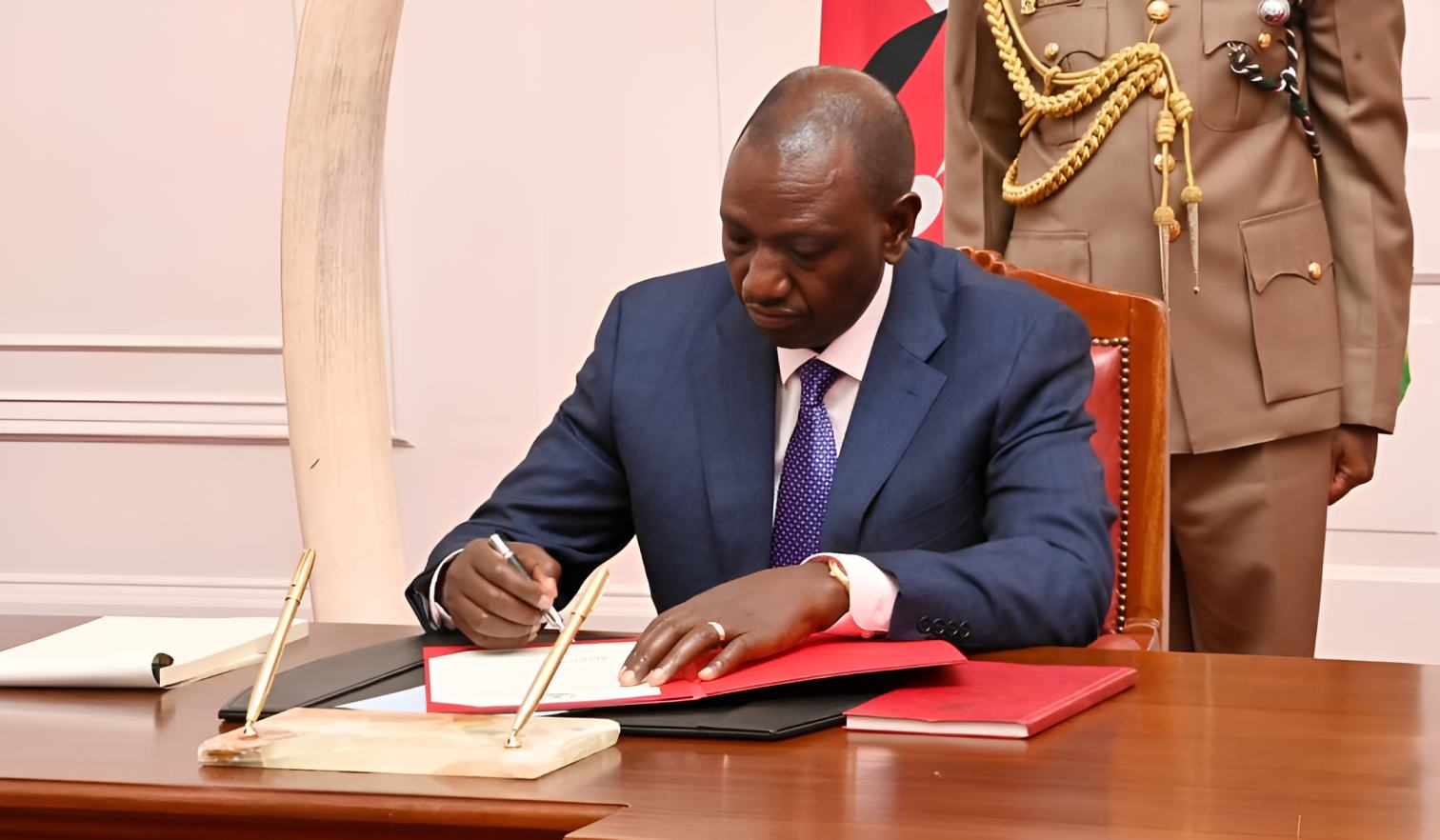President Ruto’s Bill amendments: National Assembly to respond within 21 days

These bills are the Anti-Money Laundering and Combating of Terrorism Financing Laws (Amendment) Bill, 2025, and the Conflict of Interest Bill, 2023.
Speaker of the National Assembly Moses Wetang’ula on Wednesday reported to the House the referral of two critical bills by President William Ruto for reconsideration.
These bills are the Anti-Money Laundering and Combating of Terrorism Financing Laws (Amendment) Bill, 2025, and the Conflict of Interest Bill, 2023.
The President, exercising powers granted under Article 115(1)(b) of the Constitution, sent both bills back to Parliament, expressing reservations on several clauses.
Speaker Wetang’ula emphasized the urgency of reviewing the President’s concerns, as required by the Constitution and the Standing Orders.
In the first message, President Ruto voiced reservations concerning Clause 3 of the Anti-Money Laundering Bill.
The clause proposed a change to the tenure of the Centre’s principal officeholder to a single, non-renewable six-year term.
However, Ruto argued that this provision failed to align with the constitutional framework governing independent offices, such as the Auditor-General or the Director of Public Prosecutions, whose terms are capped at eight years.
He recommended removing this provision and substituting it with a more appropriate transitional provision.
Regarding the Conflict of Interest Bill, President Ruto raised several concerns across multiple clauses.
He pointed out that Clause 2 lacked adequate definitions for "family" and "relative," potentially allowing public officers to bypass conflict-of-interest restrictions.
He recommended amending the bill to include clear definitions of these terms and adding a new definition for "undeclared asset" to address potential loopholes.
Additionally, Ruto expressed concern over Clause 5, which grants multiple institutions the authority to administer the Act.
Ruto called for an amendment that would grant exclusive administrative authority to the Ethics and Anti-Corruption Commission, aligning the bill with the provisions of Chapter Six of the Constitution.
The President’s memorandum emphasized the need for Parliament to address these reservations promptly.
Speaker Wetang’ula instructed that both bills be referred to the Departmental Committee on Justice and Legal Affairs for thorough consideration.
The committee is expected to prioritize the bills, ensuring that they are deliberated upon and brought back to the House within the constitutionally mandated 21 days.
Wetang’ula also outlined that once the House makes a decision, it will be forwarded to the Senate for concurrence.
This process is a part of the regular procedure outlined in the Constitution for dealing with presidential reservations on bills.
The consideration of these bills is crucial, as both have significant implications for governance and anti-corruption efforts in Kenya.
The Anti-Money Laundering Bill aims to strengthen the country’s framework in combating terrorism financing and money laundering, while the Conflict of Interest Bill seeks to address unethical practices among public officers.
As the National Assembly begins the process of reconsideration, it remains to be seen whether the proposed amendments will be accepted or if further revisions will be required to align with the President’s recommendations.
